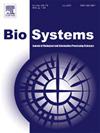The threat of asymptomatic carriers and the benefits of testing
IF 1.9
4区 生物学
Q2 BIOLOGY
引用次数: 0
Abstract
I present a model of infectious disease transmission with asymptomatic carriers, social distancing, and diagnostic testing. First, I study the impact of asymptomatic carriers on the spread of an infectious disease in the absence of testing, to determine when their presence increases the overall prevalence of symptomatic infection and hence unhealthy agents. Then, I consider mass testing and isolation policies to identify and isolate asymptomatic carriers, and incorporate them into my model. I establish that diagnostic testing successfully reduces steady state disease prevalence. I then explore the implications of testing accuracy, explicitly studying the impact of false positive and false negative test results. I find that reducing the rate of false negatives is unambiguously beneficial, since it improves the identification and isolation of asymptomatic carriers. In contrast, reducing the rate of false positives can be detrimental: by limiting the unintended isolation of susceptible individuals, lower rates of false positives reduce the overall level of social distancing in the population and increase disease spread. Hence, I demonstrate how, under certain conditions, false positive results can improve social welfare.
无症状感染者的威胁和检测的好处。
我提出了一个无症状携带者、社会距离和诊断测试的传染病传播模型。首先,我研究了在没有检测的情况下,无症状携带者对传染病传播的影响,以确定他们的存在何时会增加有症状感染的总体患病率,从而增加不健康病原体。然后,我考虑大规模检测和隔离策略,以识别和隔离无症状携带者,并将其纳入我的模型。我确定诊断测试成功地降低了稳态疾病的患病率。然后探讨测试准确性的含义,明确研究假阳性和假阴性测试结果的影响。我发现,降低假阴性率无疑是有益的,因为它提高了对无症状携带者的识别和隔离。相比之下,降低假阳性率可能是有害的:通过限制对易感个体的意外隔离,较低的假阳性率降低了人群中社会距离的总体水平,并增加了疾病传播。因此,我证明了在某些条件下,假阳性结果如何能改善社会福利。
本文章由计算机程序翻译,如有差异,请以英文原文为准。
求助全文
约1分钟内获得全文
求助全文
来源期刊

Biosystems
生物-生物学
CiteScore
3.70
自引率
18.80%
发文量
129
审稿时长
34 days
期刊介绍:
BioSystems encourages experimental, computational, and theoretical articles that link biology, evolutionary thinking, and the information processing sciences. The link areas form a circle that encompasses the fundamental nature of biological information processing, computational modeling of complex biological systems, evolutionary models of computation, the application of biological principles to the design of novel computing systems, and the use of biomolecular materials to synthesize artificial systems that capture essential principles of natural biological information processing.
 求助内容:
求助内容: 应助结果提醒方式:
应助结果提醒方式:


